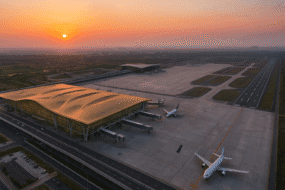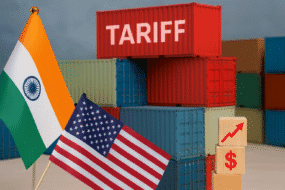Air India Cuts Ties with Turkish Technic, Citing Public Sentiment and National Concerns
Air India has confirmed it is terminating its partnership with Turkish Technic, a globally renowned aircraft maintenance provider, amid growing geopolitical sensitivities. The airline’s CEO and MD, Campbell Wilson, emphasized that public sentiment and national considerations were key factors behind the decision.
“If there is concern about continuing business in this fashion, then we’ll find alternatives. We want to respect public sentiment,” Wilson told NDTV.
This announcement follows the Indian government’s recent crackdown on Turkey-linked aviation operations. Just days ago, the Civil Aviation Ministry barred IndiGo from operating two Turkish wet-leased aircraft beyond a three-month window. In another move, the security clearance for Celebi, a Turkish-affiliated ground handling firm, was revoked across nine Indian airports.
The government’s stance comes in response to Turkey’s open support for Pakistan — particularly during Operation Sindoor, where Pakistan reportedly used Turkish-made drones in military operations against India. In response, New Delhi has made it clear that business ties with Turkish entities will not continue as usual.
Wilson explained that while some Boeing 777 aircraft are currently undergoing maintenance under existing commitments, future servicing is being redirected to alternative providers. Options include Abu Dhabi, Singapore, and Air India Engineering Services Limited (AIESL) — a government-owned MRO operator. However, AIESL’s capacity limitations mean not all maintenance can be handled domestically.
“AIESL was really the only game in town. And they don’t have the capacity for all the rehabilitation and retrofitting work. So we’ve had to send aircraft abroad,” said Wilson.
Additionally, India’s recent military face-off with Pakistan has impacted Air India’s flight routes. With Pakistan closing its airspace to Indian carriers, several long-haul North America routes are being rerouted, some becoming one-stop refueling flights.
Wilson acknowledged the operational cost surge. “There is a significant additional cost. And ultimately, it does get passed on to the consumer,” he said.
Still, he rejected the idea that the disruption has derailed Air India’s global operations. “We’re only not operating nonstop to three cities. All other destinations are still served nonstop,” Wilson clarified, noting that while some journeys are now longer by one to three hours, they remain more convenient than flying with a stopover.
As India recalibrates its aviation ties amid ongoing regional tensions, Air India’s move signals a strong alignment with national sentiment and strategic priorities.





